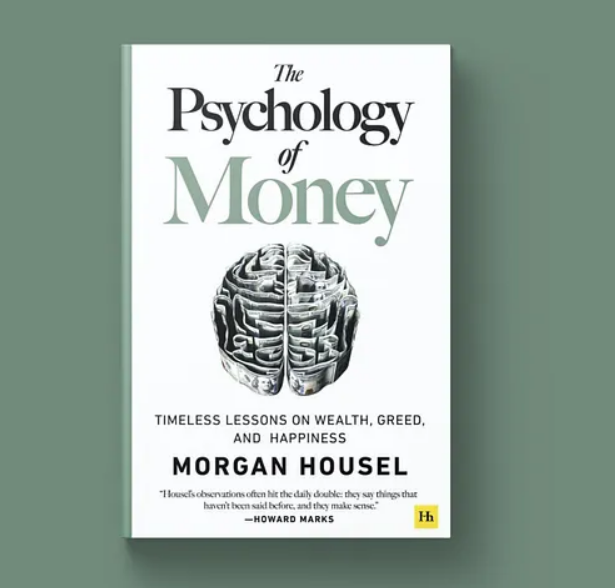The Psychology of Money: Unlocking the Secrets to Financial Success
Based from the book Psychology of Money
PERSONAL GROWTH
8/2/20232 min read


Introduction:
Money has been an essential aspect of human civilization for millennia, and its influence on our lives is undeniable. However, our behavior towards money is often irrational, emotional, and unpredictable. The book "The Psychology of Money" by Morgan Housel delves deep into the fascinating world of financial psychology, shedding light on the reasons behind our financial decisions and providing invaluable insights into achieving long-term financial success. In this blog, we'll explore the key takeaways from this eye-opening book and how understanding the psychology of money can transform your financial well-being.
The Power of Compounding:
The book emphasizes the remarkable power of compounding in building wealth over time. Compounding allows even small investments to grow significantly when given enough time. The earlier you start investing, the more time your money has to multiply. This concept encourages us to be patient investors, understanding that long-term success is more about consistency than trying to time the market.
The Role of Luck:
Morgan Housel challenges the traditional narratives surrounding financial success and highlights the role of luck in our lives. While intelligence and hard work play a part, luck often plays a more substantial role in determining financial outcomes than we'd like to admit. Recognizing this humbling reality can help us stay humble, grateful, and empathetic towards others' financial situations.
The Impact of Emotions:
Emotions, such as fear and greed, significantly influence our financial decisions. Understanding and managing these emotions are crucial for making rational choices. Housel argues that many financial mistakes arise from emotional reactions during market downturns or irrational exuberance during bull markets. Developing emotional intelligence is essential for avoiding impulsive decisions that may harm our long-term financial goals.
The Difference between Getting Rich and Staying Rich:
People often conflate getting rich with staying rich, but they are two different challenges. Building wealth requires a sound financial plan and wise investment decisions, but staying wealthy requires discipline, humility, and a focus on preserving wealth. It's essential to avoid succumbing to lifestyle inflation and financial complacency once we achieve financial success.
Adapting to Change:
The world is constantly changing, and so do financial markets and economies. Flexibility and adaptability are critical qualities for navigating the ever-changing landscape of finance. The book emphasizes the importance of having a diversified portfolio and the willingness to adjust our financial strategies as circumstances evolve.
Avoiding Excessive Debt:
Debt can be a useful tool when managed responsibly, but excessive debt can lead to financial ruin. Housel warns against falling into the debt trap and advocates for living within our means. Avoiding unnecessary debt allows us to have more control over our financial future and reduces stress during challenging economic times.
Conclusion:
"The Psychology of Money" is a thought-provoking and insightful book that delves into the behavioral aspects of finance. By understanding the psychological drivers behind financial decisions, we can improve our financial decision-making, build long-lasting wealth, and lead more fulfilling lives. Embracing patience, diversification, and emotional intelligence are key lessons that will guide us toward financial success and security. Remember, financial well-being is not just about numbers; it's about mastering the psychology of money.
